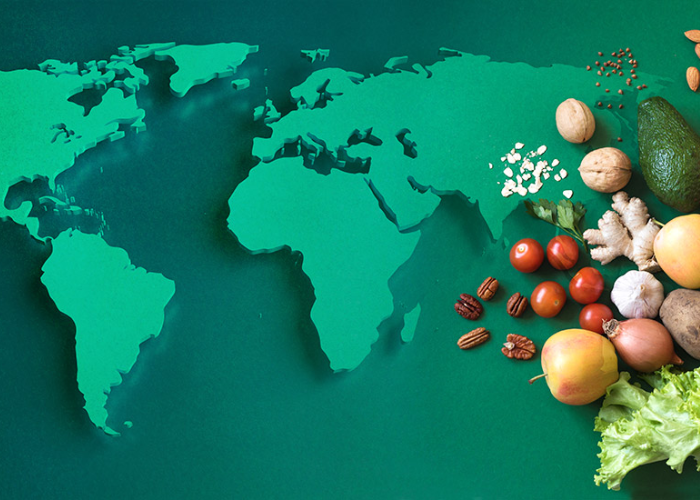Food safety: can standards provide solutions in India?BY GEORGE CHERIYAN
- 7 June 2023
- Posted by: Competere
- Categories: highlights, Media, News, SUSTAINABLE NUTRITION

*The content of this comment/opinion is the result of a brilliant elaboration that expresses a personal reasoning and may not necessarily correspond to Competere’s political line. In the spirit of criticism and discussion, the article is well-received and appreciated for further reflections.
Article published on the NuFFooDS Spectrum
The fifth World Food Safety Day (WFSD), observed on June 7, is to draw attention to the importance of food standards and inspire action to help prevent, detect, and manage foodborne risks, contributing to food security, human health, economic prosperity, agricultural production, market access, tourism, and sustainable development.
This year’s theme, “Food standards save lives,’ highlights the role of established food safety practices and standards, which ensure food safety and quality.
UNHEALTHY DIETS AND HEALTH
On an average, 1.6 million people get sick due to unsafe food in a one day. An estimated 600 million, almost 1 in 10 people in the world, fall ill after eating contaminated food and 420 000 die every year, states fact sheet of World Health Organisation (WHO). $110 billion is lost each year in productivity and medical expenses resulting from unsafe food in low- and middle-income countries. Children under 5 years of age, carry 40% of the foodborne disease burden, with 125 000 deaths every year. Foodborne diseases impede socio-economic development by straining health care systems and harming national economies, tourism, and trade.
Unsafe food and water are the biggest cause of preventable infection in India. Acute diarrhoeal disease and food poisoning have together consistently accounted for a third of the laboratory-confirmed disease outbreaks in India since 2015.
In addition, the burden of non-communicable diseases (NCDs) keeps rising in India largely due to excessive consumption of Ultra Processed Foods and beverages, containing high levels of saturated fats, sugar, and salt. Recognising this looming threat, the Sustainable Development Goals (SDGs) included the need to reduce premature deaths from NCDs by one-third by 2030.
ROLE OF STANDARDS
Food standards play a key role in ensuring public health by reducing the risk of foodborne illness; protecting consumers from unsafe, mislabeled or adulterated food; and contributing towards economic development by maintaining consumer confidence in the food system and providing a sound regulatory foundation for domestic and international trade in food. Safe food supplies support national economies, trade, and tourism, contribute to food and nutrition security, and underpin sustainable development.
Setting standards for food products is crucial to ensure their safety and quality. Standards help to establish uniformity in food production, processing, and distribution, thereby reducing the risk of contamination and adulteration. Standards also provide consumers with confidence in the safety and quality of the food products they consume.
SETTING STANDARDS
The food regulator in India, Food Safety and Standards Authority of India (FSSAI), plays a critical role in ensuring the safety by setting standards for food products to ensure their safety and quality. FSSAI has been created for laying down science-based standards for articles of food and to regulate their manufacture, storage, distribution, sale and import to ensure availability of safe and wholesome food for human consumption.
The standards cover a wide range of food products, including processed foods, dairy products, fruits and vegetables, meat and poultry, and beverages and it is regularly updated to keep pace with changing food trends and technologies. FSSAI is has power to take legal action against FBOs that violate the standards or engage in fraudulent practices.
HARMONISING WITH GLOBAL STANDARDS
Harmonising standards would increase transparency and efficiency in the supply chain, cut costs, and provide assurance of safe food for consumers worldwide.
FSSAI regularly reviews standards of various food articles prescribed under Food Safety and Standards (Food Products Standards and Food Additives) Regulations, 2011, in order to harmonise the Indian Food Standards with International Food standards, which is Codex Alimentarius Commission standards.
However, harmonising with global standards still faces challenges. Food safety regulatory systems need to constantly adapt to novel challenges, changes in food systems and climate, emerging hazards, new technologies, digitalisation, as well as by evolving consumer needs and perception. There is also need for greater cooperation and alignment between countries to overcome trade barriers. Codex needs to tackle the challenge of embracing new technological developments to avoid regulatory divergence. On this WFSD, let us work together to overcome these challenges, and effectively implement standards to ensure food safety.
.
The writer is a Consumer Activist, Expert on Food Safety, a member of CAC of FSSAI and of scientific board of Competere
*The content of this comment/opinion is the result of a brilliant elaboration that expresses a personal reasoning and may not necessarily correspond to Competere’s political line. In the spirit of criticism and discussion, the article is well-received and appreciated for further reflections.
.
Image credits: courtesy of the Food Safety Magazine >>>
